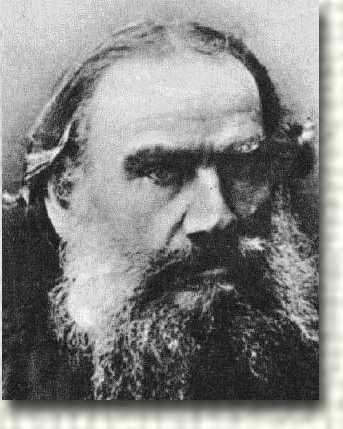
Leo Count Tolstoy

Leo Count Tolstoy
1828-1910, Russian novelist and philosopher. Of a noble
family, he was orphaned at nine and brought up by
aunts. He left the university without a degree and
returned to his family estate, Yasnaya Polyana, where he
tried to aid and educate the serfs.After a profligate
period in Moscow and St. Petersburg, he joined his
brother, an officer, in the Caucasus (1851). In 1852 he
enlisted. Childhood (1852), part of an autobiographical
trilogy that includes Boyhood (1854) and Youth (1857),
was his first published work. Leaving the army in 1855,
he lived alternately on his estate and in St. Petersburg.In 1862 he married Sophia Andreyevna Bers, a young,
well-educated girl, who bore him 13 children. War and
Peace, his first masterpiece, appeared in 1863-69. An
epic of the Napoleonic invasion, it illustrates Tolstoy's
view that history proceeds inexorably to its own ends.Anna Karenina (1875-77), his second masterpiece, is a
tragedy of adultery with profound social and spiritual
dimensions. Around 1876 Tolstoy underwent a crisis
culminating in his conversion to a doctrine of Christian
love, nonviolent acceptance of evil, and renunciation of
wealth.He devoted the rest of his life to practicing and
propagating his faith, expounded in such works as What
I Believe (1884). He considered wrong such institutions
as the government and church; he was excommunicated
in 1901, but his fame protected him from serious state
interference. Moral issues are central to his later works,
notably The Death of Ivan Ilyich (1886), a story; The
Power of Darkness (1886), a drama; and the novel
Resurrection (1899).In the essay What Is Art? (1898) he
argued that the artist is morally bound to create works
understandable to most people, and denounced his own
earlier works. In 1910 a breach with his family caused
Tolstoy to leave home; he died a few days later.